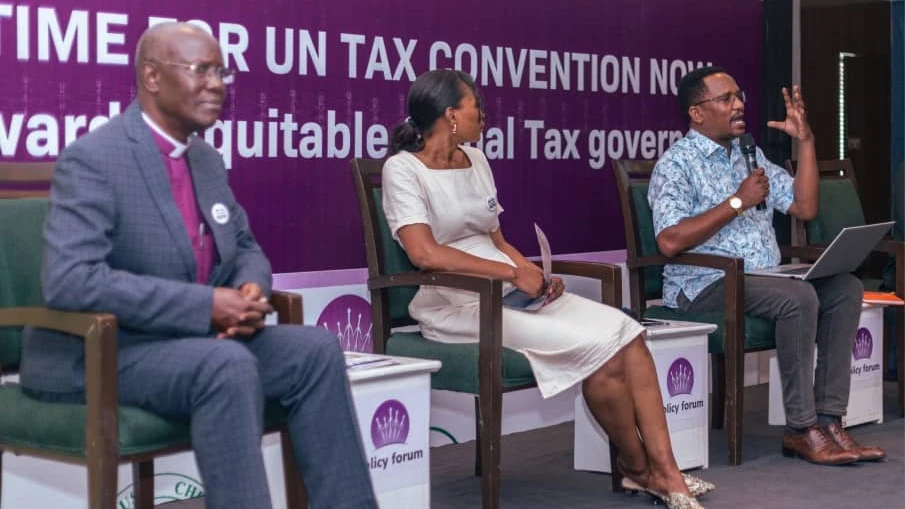
Edson Baraukwa | Africa Guardian
The proposed UN Tax Convention is poised to play a transformative role in Tanzania and across Africa, offering a platform for fairer tax agreements and greater accountability in industries like natural resources and extractives. This sentiment was echoed during a recent breakfast meeting in Dar es Salaam organized by the Policy Forum, the Norwegian Church Aid, and the Interfaith Standing Committee on Economic Justice and Integrity of Creation (ISCEJIC).
A Call for Fair Tax Policies
Speaking at the event, Edmund Matotay, National Programme Coordinator for ISCEJIC, emphasized that the UN Tax Convention could promote harmonized tax policies, benefiting local businesses and tackling illicit financial flows (IFFs). “Taxing based on the sources of economic activity is key to achieving tax justice,” Matotay noted, underscoring the importance of transparency measures like country-by-country reporting and information exchange.
Why a UN Tax Body is Vital
A UN Tax Convention would address critical challenges by:
- Promoting Equitable Tax Systems: Tailoring policies to Africa’s socio-economic realities ensures fairer taxation.
- Combating Tax Evasion: Establishing international norms would prevent multinational corporations from avoiding taxes.
- Capacity Building: Offering technical and financial support to countries like Tanzania to enhance domestic resource mobilization.
- Facilitating Cooperation: Encouraging collaboration among African nations to share knowledge and align policies.
- Aligning with SDGs: Securing financing for public services like healthcare, education, and infrastructure while amplifying Africa’s voice in global tax discussions.
Tackling Revenue Losses
Tanzania faces significant revenue losses due to tax evasion, avoidance, and IFFs. For example, underreporting trade commodities costs the nation an estimated $2.7 billion annually, weakening essential public services. Multinational corporations exploit loopholes in global tax rules, and the digital economy poses additional challenges, as tech giants often underpay taxes despite generating substantial profits in Africa.
Saint Augustine University lecturer Norah Kawiche stressed that the convention would limit the ability of multinationals to shift untaxed profits abroad, enhancing Tanzania’s capacity to recover lost revenue. “It’s a step toward greater collaboration and transparency,” she said, highlighting the potential for access to tax information from over 100 countries.
The African Context
East Africa loses $6 million annually to IFFs, as per the East African Business Council, exacerbating underfunding in critical sectors like education and healthcare. Globally, nations lose $480 billion annually to tax abuse, with Africa alone forfeiting $50 billion, according to the Mbeki Report.
With the UN Tax Convention, African countries can counter these systemic failures, reduce reliance on foreign aid, and secure sustainable development financing. Mohammed Hersi of ISCEJIC argued that aligning with the global movement for tax justice would ensure a fairer share of revenue from high-net-worth individuals and corporations.
Reshaping Global Tax Governance
Unlike current international tax reforms dominated by the OECD and institutions like the IMF, the UN Tax Convention advocates for inclusive, transparent decision-making. It envisions a tax system that works for all nations, especially developing countries.
A Path Forward
The convention would enable Tanzania and other African countries to assert greater influence in global tax negotiations, ensuring resources are used to drive national growth. As the Tax Justice Network warns of $5 trillion in potential losses to tax havens over the next decade, the UN Tax Convention offers a solution to protect African economies and secure a fairer financial future.
By embracing this initiative, Tanzania can join a global effort to combat tax injustice and create a more equitable economic landscape for its citizens.
___
